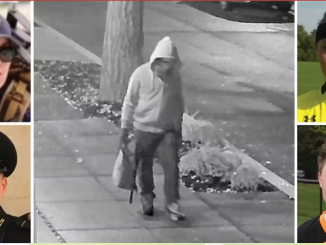
Tyler Robinson. Credit: Utah County Sheriff’s Office
Published September 19, 2025
From Manhunt to “Gentle Surrender”: How Charlie Kirk’s Alleged Assassin Handed Himself Over
When news broke that Charlie Kirk, the outspoken conservative activist and founder of Turning Point USA, was gunned down during an event at Utah Valley University, shockwaves rippled across the nation. Within hours, law enforcement identified 27-year-old Tyler James Robinson as the prime suspect, sparking a tense manhunt across southern Utah. But instead of a violent raid or a standoff, Robinson’s arrest came in a way that has since drawn both outrage and debate — through what officials described as a negotiated, “gentle surrender.”
The Path to Surrender
After Kirk’s assassination at Utah Valley University, law enforcement launched a rapid manhunt for the suspected gunman, Tyler Robinson. Helicopters, tactical teams, and roadblocks were set up across southern Utah as investigators closed in on his location. But even as the dragnet tightened, Robinson was reportedly wrestling with a deep fear — not of capture itself, but of being killed during the process.
According to Sheriff Nate Brooksby, Robinson became convinced that SWAT officers would storm his home or shoot him on sight. Those fears were compounded by reports that his identity, description, and weapon had already been made public. Realizing he could not run, Robinson reached out to his parents, who in turn contacted a trusted family friend with law enforcement experience.
Negotiations began quietly. Rather than risk a raid or a shootout, officials and family members arranged a surrender that would be controlled, calm, and free of confrontation. Robinson’s parents drove him to the Washington County Sheriff’s Office, accompanied by the ex-officer, who assured deputies that Robinson would cooperate if treated without aggression.
When Robinson entered the building, deputies did not tackle him to the ground or brandish weapons. Instead, they guided him into a secure interview room, where he was offered water and allowed to sit in silence while investigators were called in. Sheriff Brooksby later explained that the approach was intentional: “We wanted him to feel relaxed and comfortable so that no one — not officers, not bystanders, and not Robinson himself — would get hurt.”
For many, this “gentle surrender” was an unusual but pragmatic decision. It spared law enforcement the danger of a standoff, prevented Robinson from potentially harming himself or others, and ensured he was taken alive to face justice. But it also ignited fierce debate over whether such courtesy is standard procedure — or a privilege reserved for high-profile cases that draw national attention.
A Divided Reaction
The manner of Robinson’s arrest has become almost as controversial as the crime itself. While the “gentle surrender” prevented bloodshed, it has sparked a fierce debate about fairness, double standards, and the appearance of leniency in the justice system.
For law enforcement, the decision was a matter of safety. Officers argued that ensuring Robinson surrendered peacefully reduced the chance of a violent standoff, where not only the suspect but also officers and bystanders could have been killed. Supporters of this approach point to the fact that, in many high-risk arrests, the goal is to bring the suspect in alive so the courts — not bullets — can decide their fate. “We wanted the safest possible outcome,” Sheriff Brooksby explained, emphasizing that the priority was to avoid turning a courtroom case into another tragedy.
But many on the political right see it differently. To them, the soft treatment of Robinson stands in stark contrast to the often aggressive tactics used on ordinary citizens accused of far lesser crimes. RedState called Robinson’s negotiated handover “cowardice dressed up as compassion,” while Gateway Pundit blasted the approach as proof of a double standard — a dangerous precedent where ideology and notoriety may influence how suspects are handled. Critics also argue that the suspect’s fear of being shot was ironic, given that he allegedly had no such concern for Charlie Kirk when he pulled the trigger.
Families of Kirk’s supporters expressed anger at the idea that a man accused of political assassination was greeted with courtesy, offered water, and spared the experience of handcuffs until later. “If this had been anyone else,” one commenter fumed online, “the police would’ve stormed his house in the middle of the night. Instead, he gets a red carpet.”
The debate underscores the wider polarization tearing at the country: Was Robinson’s treatment a sign of professionalism and restraint by police, or a troubling example of unequal justice? For many, the answer depends less on the facts of the arrest than on where they stand in America’s deepening political divide.
Motive and Ideology
As investigators pieced together the hours leading up to Charlie Kirk’s murder, they began uncovering fragments of a possible motive. Court filings reveal that Tyler Robinson, once described as politically indifferent, had shifted in recent years toward more progressive and activist-leaning views. Friends and family noted his growing frustration with conservative figures, particularly those who opposed transgender rights — a group Kirk often criticized in speeches and on his platforms.
Prosecutors allege Robinson internalized that anger to the point of obsession. In text messages and online posts cited by investigators, he referred to Kirk’s rhetoric as “poison” and claimed he had “had enough.” Authorities argue that this language illustrates a man who believed political disagreement justified violence.
But defense attorneys may try to muddy that narrative. They have suggested Robinson’s mental state — marked by fear, paranoia, and reported suicidal thoughts — complicates any clear-cut picture of motive. Was he driven by ideological hatred? Was it despair and instability disguised as politics? Or was it a combination of both? These questions are likely to loom large in court.
What is clear is that the shooting has amplified the national conversation over how rhetoric influences behavior. Supporters of Kirk point to Robinson as proof that left-wing hostility toward conservative voices is metastasizing into political violence. Others caution against drawing broad conclusions, warning that extremists of all stripes can become unhinged, and that personal instability may play as big a role as ideology.
Regardless of the ultimate legal framing, Robinson’s case embodies the volatile intersection of free speech and violent action. When heated debates over cultural issues leave the realm of argument and spill into bloodshed, the consequences are not only tragic for individuals but corrosive for the democratic process itself.
Robinson reportedly had suicidal thoughts but was convinced by his parents not to harm himself.
Tyler Robinson attends a virtual court hearing from Utah County Jail on Sept. 16, 2025 in Spanish Fork, Utah.
Law enforcement officials prepare to sweep a building at Utah Valley University, Wednesday, Sept. 10, 2025, in Orem, Utah.
 Implications
Implications
1. Law Enforcement Practices
-
Raises questions about whether suspects in politically sensitive cases get more careful handling compared to ordinary citizens.
-
Could spark debate over whether police show double standards in how arrests are carried out.
-
Sets a precedent for suspects negotiating the terms of their own surrender if they fear police escalation.
2. Political Polarization
-
The alleged ideological motive (anger over Kirk’s conservative stance on trans issues) highlights the risks of escalating political violence in the U.S.
-
May deepen mistrust between opposing political groups, with each side framing the case to reinforce their narratives.
-
Could inflame debates about whether rhetoric from public figures contributes to violence.
3. Justice System & Public Perception
-
The “gentle” treatment could be viewed as fairness—or as favoritism—depending on political lens.
-
Victim’s supporters may see it as unfair leniency, while others may argue it prevented unnecessary bloodshed.
-
Prosecutors seeking the death penalty shows the state is treating it with the utmost severity, balancing perceptions.
4. Free Speech vs. Safety
-
Case touches on the tension between strong political speech and violent backlash.
-
Raises concern that heated political discourse may inspire real-world attacks.
-
Could reignite debates over whether platforms or society should regulate “divisive” speech—or whether violence is always the sole responsibility of the attacker.
5. Security for Public Figures
-
Event underscores vulnerability of political figures at public events, even on college campuses.
-
May lead to tighter security for speakers, especially those in controversial spaces.
-
Universities and event organizers may reassess protocols to protect both guests and attendees.
 Overall Takeaway:
Overall Takeaway:
The arrest of Tyler Robinson, accused of assassinating Charlie Kirk, is more than a criminal case—it is a reflection of America’s deeper divisions. His request for a “gentle surrender” highlights not only his fear of law enforcement but also the intense scrutiny placed on how justice is applied in politically charged cases. While prosecutors pursue the death penalty, public debate continues to swirl around law enforcement’s response, the role of rhetoric in fueling violence, and the safety of public figures who step into the national spotlight. Ultimately, this case underscores the fragile balance between free expression, political passions, and the pursuit of justice in a deeply polarized nation.
SOURCES: THE NEW YORK POST – Alleged Charlie Kirk assassin Tyler Robinson negotiated ‘gentle’ surrender, was afraid of being shot: sheriff
THE GATEWAY PUNDIT – REPORT: Charlie Kirk’s Alleged Assassin Negotiated ‘Gentle’ Surrender to Police Because He Feared Being Shot
REDSTATE – Alleged Charlie Kirk Killer’s Negotiated Surrender Takes Hypocritical Cowardice to Whole New Level
FOX 13 NEWS – Alleged Charlie Kirk assassin Tyler Robinson negotiated ‘gentle’ surrender, was afraid of being shot: sheriff








Be the first to comment